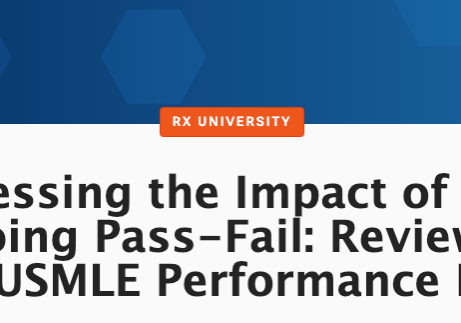As medical students, we all know that the USMLE board exams represent a gauntlet of tests that are part of the gateway to licensing and residencies. Yes, these exams are known to be notoriously difficult, and every med student will tell you that the struggle is real. Among the many challenges that the USMLE Step exams pose, there is one that catches many students off guard – the Experimental Questions. These questions, which might feel like mindboggling landmines on test day, are a topic of anxiety for those who are prepping. So let’s take a moment to describe what these experimental questions are, why they exist, and how many you’re likely to see on test day.
Experimental Questions
Experimental questions have been a part of the USMLE Step exams for quite some time now. These questions are a means of testing the questions for their future inclusion in the exams. Essentially, these questions do not count towards your final score, but are instead used to develop and refine future exam questions. Experimental Questions are typically included in every section of the exam, and, sadly, there aren’t blinking neon lights identifying them for you.
The reason for the inclusion of experimental questions on Step 1 and Step 2 CK is quality assurance. The NBME is in charge of setting the standards for medical licensing and is responsible for ensuring that all medical students who pass the exams meet those standards. The USMLE Step exams are updated regularly to reflect changes in medical practice, research, and education, and to improve the safety and quality of patient care. The Experimental Questions that are included in the exams help the USMLE program keep up with these changes and are intended to help make future exams as fair and accurate as possible.
Experimental questions are not graded, and they do not affect your final score. This means that you should not spend any more time on them than you would on any other question. Focusing on getting as many correct answers as possible is important, rather than worrying about these sometimes sadistic items built in the NBME’s lab. Don’t feel discouraged if you come across a question that seems unusually difficult or unfamiliar – it could be an Experimental Question. However, even if a question smells experimental to you, you still want to approach it with the same framework you use for every other question.
It is essential to note that experimental questions do not count towards your final score, because they are not easy. While they’re ostensibly designed to mimic the difficulty level of the exam questions, students report that they feel significantly harder. It is not uncommon for students to feel befuddled and lost when they encounter experimental items, a feeling that can quickly derail their exam performance if you don’t keep a level head. As medical students, it’s important to be aware of their existence and prepare yourself with the same level of intensity as you would for any other exam question.
How Many Experimental Questions Are on the USMLE Step 1 and USMLE Step 2 CK Exams?
Experimental questions can make up a substantial portion of the exam, but the exact number is generally not disclosed. Back in 2020, the USMLE proposed a shortened version of the exam back in 2020, where they essentially would remove the experimental questions. The changes would have reduced the number of Step 1 questions from 280 items to 200, while slimming Step 2 CK from 318 to 240. These changes would have decreased the overall test time by two hours. But this proposal didn’t fly.
Nevertheless, the proposal revealed that roughly 25% of the questions on these exams are experimental. So if you feel stumped every 4 questions, this might be the reason why.
Experimental questions are an integral part of the USMLE Step exams, even though they do not count towards your final score. As medical students, just be aware of their inclusion and be prepared to tackle them like any other exam question. And if you come across an unfamiliar or challenging question during Step 1 or Step 2 CK, remember that it could be an experimental question, take a deep breath and tackle it with confidence.




